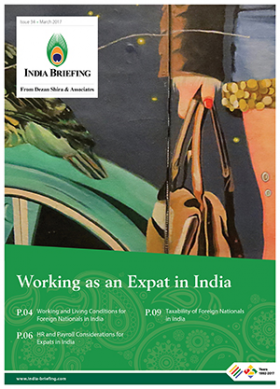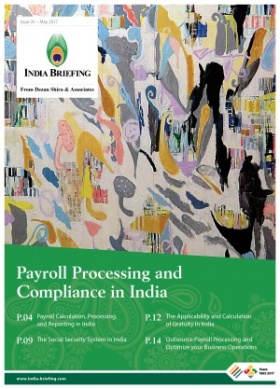Trudeau’s India Visit: Lessons for Foreign Investors
On February 18, 2018, Canadian Prime Minister Justin Trudeau arrived in India on his first official visit to the country since taking office in 2015. Canadian media made much of the fact that Trudeau was not personally greeted by Indian PM Narendra Modi – as Benjamin Netanyahu was a month earlier.
However, the alleged lack of royal treatment would be the least of Trudeau’s problems as the Canadian leader stumbled from cultural blunder to political snafu.
Trudeau is a popular leader around the world who enjoys substantial support from Canada’s Indian diaspora. How did he manage to lose face on a seemingly daily basis while in India?
Trudeau’s India visit: What happened?
During his weeklong trip to India, Trudeau made a valiant effort to fit in: donning numerous Indian outfits as he travelled across the country. While some in India appreciated the effort, many found the overly stylized garments culturally inappropriate. Indians took to social media to publicly muse whether Trudeau planned to talk trade and policy or was preparing for a Bollywood audition.
Journalists then reported that a Canadian citizen convicted of the attempted assassination of an Indian politician had been invited to an official dinner at the Canadian High Commission. The controversial dinner guest is a known advocate for Punjab or ‘Khalistani’ independence. The Canadian delegation quickly rescinded the dinner invitation but not before the incident made headlines in both countries.
Lessons for foreign investors
India’s business environment is built upon long term relationships. Flaunting a one-dimensional understanding of a country as diverse and contradictory as India can severely damage the reputations of foreign politicians and business leaders alike.
While the Trudeau team did make several questionable decisions, similar blunders – albeit on a lesser scale – could easily befall foreign businesses entering the Indian market.
In fact, Trudeau’s misadventures in India make instructive reading for foreign businesses expanding their operations into Indian markets.
- Respecting Indian culture
India’s vibrant culture can simultaneously attract and overwhelm visitors. When foreigners attempt to emulate cultural practices, the result can, at times, come across as out of place or even insensitive.
For instance, many Indian businessmen do opt for traditional clothing, favoring thick vests in subtle colors popularly referred to as ‘Nehru jackets’ (after India’s first prime minister who demonstrated a particular fondness for the garment). The brightly colored, festive wear Trudeau sported throughout much of his trip, in contrast, would be more suitable for a large wedding.
Indians appreciate when visitors to the country take an active interest in their culture. However, we advise foreign investors visiting the country to take their host’s lead on culture contact. In short, do not try to ‘out-India’ your Indian counterparts.
- For business, India is not a single country
Many early commentators within Canada assumed that the Trudeau government’s impressive inclusion of Indian Canadians in high places would work to improve bilateral ties. But, in some ways, it has done the opposite.
India’s Chief Minister for the state of Punjab has openly criticized Canadian politicians for their alleged sympathies towards the separatist Khalistan movement – refusing to meet Canadian Defense Minister Harjit Sajjan during his India visit in April 2017. The ‘Khalistan issue’ has unnecessarily and fruitlessly overshadowed Indo-Canadian relations and trade potential for the last two years.
India encompasses 29 states, 7 union territories, and 22 official languages. Foreign investors should treat India as they treat the European Union: an amalgamation of distinct states within a relatively open market. (The Indian state of Maharashtra alone is nearly three times as populated as Canada.)
While a background in South Asian history is certainly not necessary to succeed in India, foreign businesses should be cognizant of India’s many political tensions and competing ideologies when choosing where and how to set up.
Otherwise, a business’ brand could end up as fodder for regional politicians and religious pundits.
- India likes long term relationships
From small corner stores to billion-dollar enterprises, India’s economy is powered by family businesses. Consequently, business in India is largely predicated on long term relationships.
Trudeau arrived in India on February 18 but only met Modi on February 23. In the five days preceding the official meeting, Trudeau was seen visiting popular tourist destinations across the country, including the Taj Mahal and Mahatma Gandhi’s former residence. The resulting impression was a visiting prime minister more interested in sight-seeing than meeting India’s political and business leaders.
Foreign investors should begin a trip in India with business meetings and only end it with travel. Spending sustained time visiting a potential partner or contact’s office or factory demonstrates considerable good will.
Succeeding in India
Trudeau’s trip will be remembered as a road map on how not to act while in India, and foreign investors can learn a lot.
Demonstrating measured respect for Indian culture, basic knowledge of India’s sensitive topics, and a willingness to put in the necessary time can markedly improve business relations and elevate brand reputation.
Though all seemingly obvious, much of the business troubles foreign companies experience while in India can be avoided by following these three simple steps. More importantly, these steps imply a proactive game plan – crucial for success in India.
About Us
India Briefing is published by Asia Briefing, a subsidiary of Dezan Shira & Associates. We produce material for foreign investors throughout Eurasia, including ASEAN, China, Indonesia, Russia, the Silk Road, & Vietnam. For editorial matters please contact us here and for a complimentary subscription to our products, please click here.
Dezan Shira & Associates provide business intelligence, due diligence, legal, tax and advisory services throughout India and the Asian region. We maintain offices in Delhi and Mumbai and throughout China, South-East Asia, India, and Russia. For assistance with India investment issues or into Asia overall, please contact us at india@dezshira.com or visit us at www.dezshira.com.
- Previous Article Germany, India Diversify Economic Relations – Manufacturing, SMEs, Startups
- Next Article India-Iran DTAA – A Step Forward in India’s Economic Engagement with Central Asia












